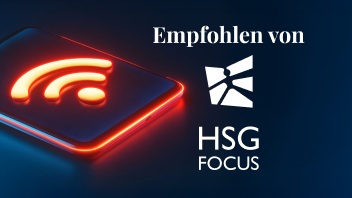
China dominiert den Weltmarkt bei begehrten Rohstoffen für digitale Produkte. Das schafft Abhängigkeiten. Die will Indien nicht mehr hinnehmen – durch mehr eigenen Abbau, mehr Recycling und mehr internationale Zusammenarbeit.Sawant, Nimish; Toepler, Lena
Deutschlandfunk

Die Regierung unter Präsident Trump verfolgt ein „revolutionäres Programm“. Das zeigte sich in der Rede des US-Außenministers Rubio in München, sagt Politologe Christian Mölling. Zwischen den NATO-Partnern sei viel Vertrauen kaputtgegangen.Mölling, Christian
Deutschlandfunk

Rubio to Europe: A softer tone than Vance. But same message? Audio sseth.drupal@c… 16 February 2026 In a special edition of Chatham House’s Independent Thinking podcast recorded at the Munich Security Conference 2026 over the weekend, Chatham House Director Bronwen Maddox and Grégoire Roos, Director of the Europe and Russia and Eurasia Programmes, unpack the key issues that emerged from this year’s forum. The main speaker, US Secretary of State Marco Rubio, adopted a different tone from Vice President JD Vance, who shocked many in the audience last year when he delivered a verbal broadside against Europe at the same conference.But does it signify a shift in the Trump administration’s newly assertive stance, or was it the same message in a different wrapping? In a recording session in a side room amid the hustle and flow of the conference, they also discuss innovations in defence technology and drone development, the resilience of Ukrainian President Volodymyr Zelenskyy, what level of support Ukraine can expect from Europe, and whether European companies and policymakers will respond effectively in the face of increasing competition from Chinese manufacturers.About Independent ThinkingIndependent Thinking is a weekly international affairs podcast hosted by our director Bronwen Maddox, in conversation with leading policymakers, journalists, and Chatham House experts providing insight on the latest international issues.More ways to listen: Apple Podcasts, Spotify.
Chatham House

Ob Verteidigung oder Digitales – die EU hängt an den USA. Guntram Wolff führt dies auf geringen Fortschritt auf dem Binnenmarkt zurück. Deshalb mangelt es an Firmen, die sich von den USA lösen könnten, so der Wirtschaftsexperte vom Thinktank Bruegel.Noll, Andreas
Deutschlandfunk

KI-CEO Matt Schumer sorgt mit einem Essay für Wirbel. Darin erklärt er, KI stehe an einem Wendepunkt, ganze Berufsfelder könnten schneller verschwinden als die Politik reagieren kann. KI-Experte Krüger widerspricht und sagt: Shumer hat nur teilweise recht.May, Philipp
Deutschlandfunk

Deposits are US banks’ primary funding source, but they can also add to interest rate risk. This column presents new micro evidence that depositor inattention affects banks’ deposit pricing and interest rate risk. Depositors manage their accounts infrequently, and balance adjustments occur at different speeds for different income sources. Banks serving more inattentive depositors set lower deposit rates, have lower deposit betas, and weaker outflows when the policy rate rises. Ultimately, the ability of the deposit franchise to cushion or amplify banks’ interest rate risk depends on the level of the policy rate and on depositor inattention.
Center for Economic Policy Research